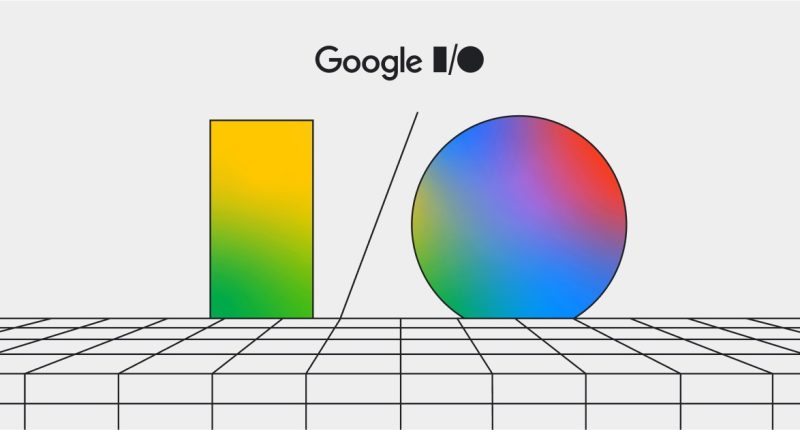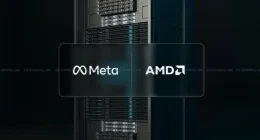For decades, Google Search has been the go-to platform for navigating the ocean of information on the internet. However, the information landscape is undergoing a rapid transformation over the past year, and the emergence of generative AI models and chatbots like ChatGPT has challenged Google’s dominance in the search engine landscape, prompting the company to integrate AI into its products and services. It was in this vein that the tech behemoth has decided to roll out a comprehensive revamp of Search, aiming to propel it from a simple link aggregator to an AI-powered search assistant.
This update was revealed during Google’s annual developer conference, Google I/O, where AI was the cynosure of every eye. By leveraging cutting-edge generative AI technology, Google aims to transform Search into a multifaceted resource capable of directly addressing user queries and assisting with tasks such as event planning and idea generation. A cornerstone of the revamped Search experience is the introduction of AI Overviews.
When a user enters a query, ‘AI Overviews’ utilizes its natural language processing prowess to grasp the intent behind the search. Subsequently, it analyzes relevant web content and curates a concise summary directly presented on the search results page, eliminating the need to meticulously sift through multiple links. Google notes that AI Overviews in Search leverages the company’s custom Gemini model’s multi-step reasoning capabilities, permitting users to pose intricate questions with multiple facets in a single search.
For instance, planning a weekend getaway in an unfamiliar city can be a daunting task. Traditionally, you might search for “hotels in [city name]” followed by separate searches for attractions and restaurants. With multi-step reasoning, you could pose a query like “find me a hotel in [city name] near must-see attractions, with good vegetarian restaurants close by.” Google Search, powered by AI, will deliver a comprehensive response (such as an interactive map showcasing hotels overlaid on points of interest with nearby restaurants filtered for vegetarian options – all presented on a single, user-friendly page.) Google notes that this will now be available in Search Labs in English in the US.
For example, if you are delving into the connection between lightning and thunder, then traditionally, Google Search would return a plethora of websites on the topic. With AI Overviews, you’ll be presented with a explanation alongside the links, which also elucidates the electrical processes that generate lightning and the resulting sound waves that produce thunder.
Initially available through the Search Labs platform, AI Overviews have now been rolled out to millions of users in the US, with plans for global expansion. Going forward, users will be able to adjust their AI Overview with options to “simplify the language or break it down in more detail.” AI Overviews is likely to prove to be a strong boost for Google Search, especially at a time when there are AI-powered competitors in the search arena, including OpenAI’s ChatGPT and Microsoft’s Bing powered by OpenAI’s GPT-4. These platforms have disrupted conventional search paradigms by offering instantaneous answers to user inquiries.
Additionally, Google Search is now going beyond text. Text-based searches have long been the cornerstone of Google Search. However, the new features embrace a more multifaceted approach. Google is introducing video search functionality, allowing users to upload a video clip and receive search results based on the visual content. “Maybe you bought a record player at a thriftshop, but it’s not working when you turn it on and the metal piece with the needle is drifting unexpectedly,” Google announced in a blog post. “Searching with video saves you the time and trouble of finding the right words to describe this issue, and you’ll get an AI Overview with steps and resources to troubleshoot.”
Apart from this, Google is also presenting a new Web filter. hen activated, it bypasses AI Overviews entirely. Instead, search results are presented solely through a list of links, much like the classic Google Search interface of the past, and only text-based links will be shown.
We’ve launched a new “Web” filter that shows only text-based links, just like you might filter to show other types of results, such as images or videos. The filter appears on the top of the results page alongside other filters or as part of the “More” option, rolling out today… pic.twitter.com/tIUy9LNCy5
— Google SearchLiaison (@searchliaison) May 14, 2024
And in addition to this, users opting into the Search Labs platform will gain access to advanced features driven by generative AI, including language processing and multistep reasoning capabilities. This enables users to obtain detailed explanations and insights on complex topics, further enhancing the search experience. Furthermore, Google is introducing AI-powered organization of search results. This signifies that the order in which websites appear will no longer be solely determined by keyword relevance. Instead, AI will analyze the user’s intent and the content of the webpages to curate results based on potential areas of interest. For example, if you’re researching a new recipe, you might see websites with step-by-step instructions at the top, followed by food blogs offering variations or reviews of the dish.
The Tech Portal is published by Blue Box Media Private Limited. Our investors have no influence over our reporting. Read our full Ownership and Funding Disclosure →






